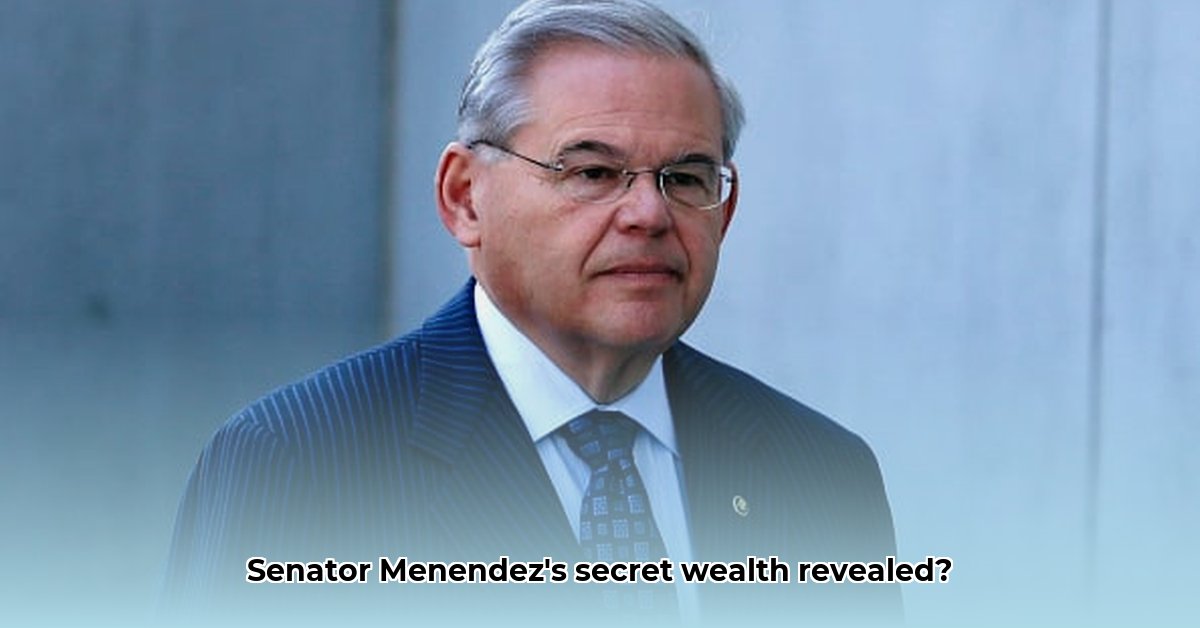
A Hazy Financial Picture: Unraveling Senator Menendez's Wealth
Senator Robert Menendez's recent resignation has ignited intense scrutiny of his financial affairs. Determining his precise net worth, however, proves surprisingly challenging. Estimates vary widely, ranging from several hundred thousand dollars to over a million. This significant discrepancy stems from the inherent limitations of current financial disclosure laws for public officials. While his income sources include his senatorial salary, investments (in companies such as Amazon, Johnson & Johnson, and Boeing), real estate holdings, and retirement benefits, the details often lack precision. This lack of specificity makes accurate assessment difficult and fuels public concern regarding transparency and accountability in government. The reported figures, frequently presented as broad ranges rather than precise amounts, hinder any definitive conclusion about his total net worth. This opacity undermines public trust and raises questions about the effectiveness of existing disclosure regulations. For comparison, see the complexities surrounding Jeff Sessions' net worth.
Is this lack of detail an intentional effort to obscure the true financial picture, or simply a byproduct of inadequate reporting requirements? The answer remains elusive, emphasizing the need for stronger financial transparency laws.
A History of Controversy: Allegations and Their Impact
Senator Menendez's career has been marred by several financial controversies. A 2015 bribery trial, linked to his relationship with Dr. Salomon Melgen, ended in a mistrial. While acquitted, the allegations significantly damaged his public image and raised concerns about ethical conduct. More recent allegations, whose specifics haven't been fully disclosed publicly, ultimately led to his resignation. Connecting these events to his financial situation is complex and open to interpretation. Some argue the allegations themselves, irrespective of legal outcomes, contributed to his decision to resign. Others suggest the resignation was primarily a response to the political fallout rather than directly tied to financial impropriety. The full story, and its implications, may only unfold over time.
How much weight should be given to unproven allegations in assessing a public official's fitness for office? This question, central to the Menendez case, highlights the inherent tensions between protecting reputations and upholding ethical standards.
Transparency: A Critical Gap in Accountability
The difficulties in accurately assessing Senator Menendez's net worth expose a broader deficiency: inadequate financial disclosure laws. The current regulatory framework permits wide reporting ranges, making precise calculations essentially impossible. This lack of transparency erodes public trust and creates an environment ripe for ethical concerns, or at least the perception thereof.
This opacity not only hinders accurate evaluation of a politician's financial status but also fuels speculation and cynicism amongst the electorate. How can the public confidently assess the integrity of their representatives when so much crucial information is obscured?
The Path Forward: Reforming Financial Transparency
The Menendez case underscores the urgent need for reform in several key areas.
Strengthening Disclosure Laws: Congress must mandate precise asset valuations, not just ranges, and require the reporting of all significant holdings, including detailed information about real estate, investments, and retirement accounts. Penalties for non-compliance should be significantly increased.
Independent Oversight: An independent body should be established to review and audit all senatorial financial disclosures, eliminating potential conflicts of interest and ensuring impartial assessments.
Enhanced Public Access: Financial disclosures must be made readily accessible and easily understandable to the public. Current formats are often opaque and require specialized knowledge to decipher.
Increased Media Scrutiny: News organizations must consistently investigate and report on the financial affairs of all public officials, fostering accountability and transparency.
Voter Empowerment: Citizens need to be educated about the importance of financial transparency and empowered to demand accountability from their representatives.
The Menendez saga serves as a cautionary tale. Without substantial reforms, the erosion of public trust in our political system will continue. The need for transparency and accountability is paramount to maintaining a healthy and functioning democracy.